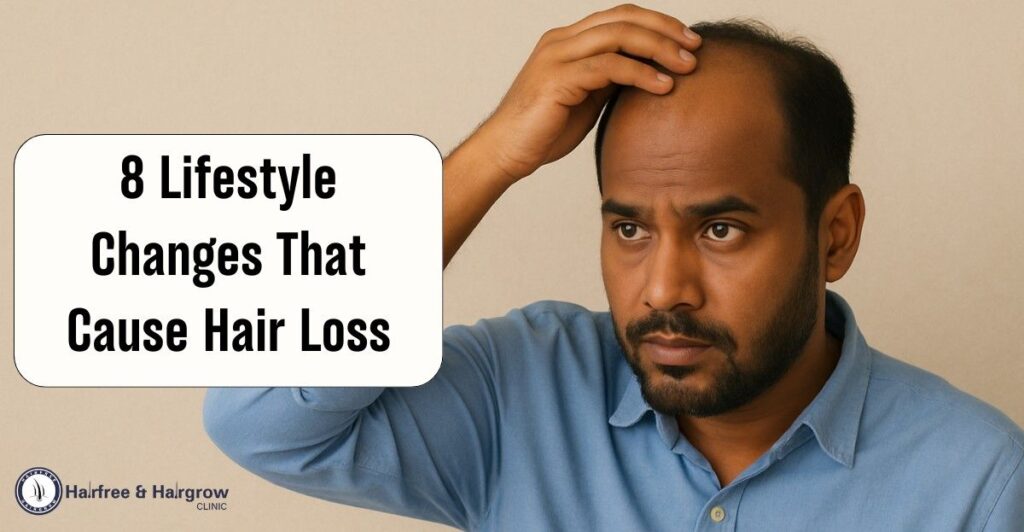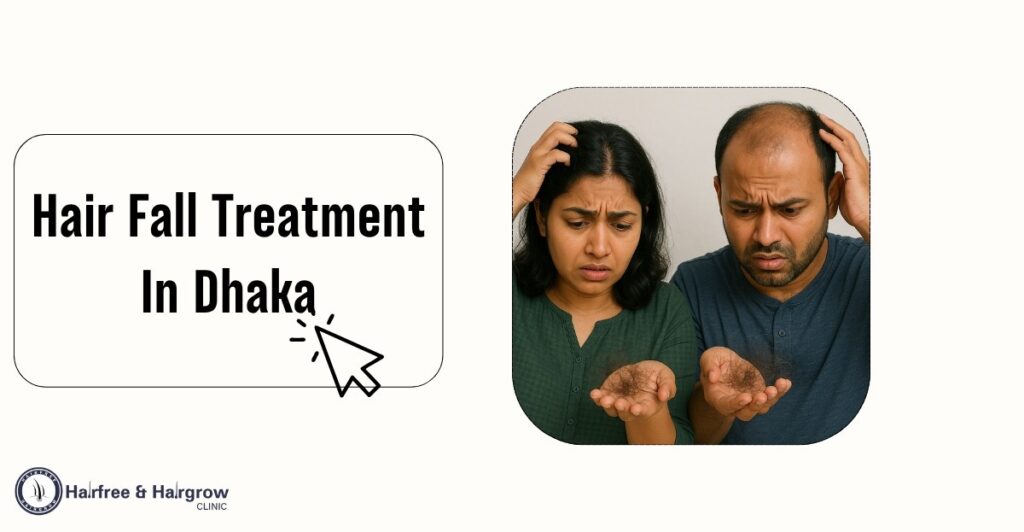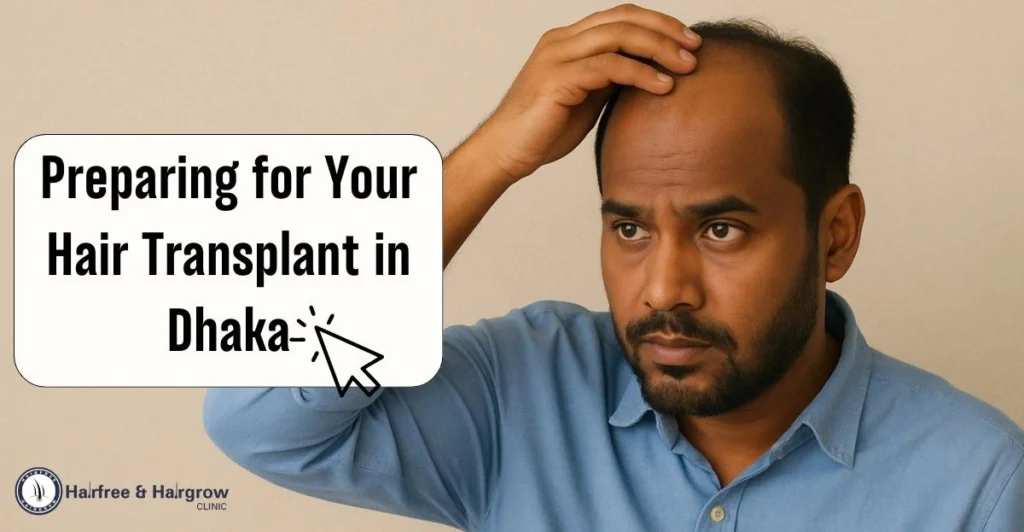Hair transplant surgery is an increasingly popular procedure to combat hair loss and baldness. While many people are excellent candidates for hair restoration, several underlying medical conditions can influence the results, safety, and overall outcome of the procedure.
A thorough understanding of how these health conditions interact with hair transplant surgery is essential for patients and surgeons.
This guide delves deep into 30 health conditions and their relevance to hair transplant surgery, offering a comprehensive overview of each.
Our Clinic Location: Hair Transplant in Dhaka
Table of Contents

1. Hair Transplant and Diabetes
- Diabetes, especially when uncontrolled, affects the body’s ability to heal and fight infection.
- High blood sugar levels impair blood circulation, leading to slow wound healing.
- Poor healing may result in loss of transplanted hair grafts.
- Increased risk of post-surgical infections due to compromised immunity.
- Diabetic patients are encouraged to stabilize their HbA1c levels before surgery (preferably below 7%).
- Special surgical techniques and antibiotic protocols may be employed.
2. Hair Transplant and Blood Pressure
- Patients with high blood pressure are prone to excessive bleeding during surgery.
- Fluctuations in blood pressure can interfere with local anesthesia effectiveness.
- Stress and anxiety about the procedure can elevate blood pressure levels.
- Proper control of hypertension before the procedure is critical.
- Surgeons may avoid vasoconstrictive agents like epinephrine in certain cases.
3. Hair Transplant and Heart Disease
- Individuals with coronary artery disease, heart failure, or arrhythmias require special caution.
- Cardiac clearance from a specialist is mandatory before the procedure.
- An ECG, echocardiogram, or stress test might be needed pre-operatively.
- Avoiding anesthetic combinations that strain the cardiovascular system is crucial.
- Emergency cardiac resuscitation protocols must be available at the clinic.
4. Hair Transplant and Thyroid Disorders
- Hypothyroidism and hyperthyroidism both cause diffuse hair thinning.
- Imbalanced thyroid hormones can affect hair regrowth post-transplant.
- Patients must be on a stable dose of thyroid medication prior to surgery.
- Blood tests such as T3, T4, and TSH are necessary to assess thyroid health.
5. Hair Transplant and Autoimmune Diseases
- Autoimmune disorders like lupus, alopecia areata, or rheumatoid arthritis can attack healthy hair follicles.
- Graft rejection is more likely if the immune system is actively attacking tissues.
- Immunosuppressive medications complicate recovery and increase infection risk.
- A rheumatologist should be involved in pre-operative planning.
6. Hair Transplant and Mental Health
- Psychological conditions such as depression, anxiety, or BDD can distort expectations and satisfaction.
- Patients may seek unrealistic results, leading to dissatisfaction.
- Preoperative psychological evaluation may be required.
- Post-surgical mental health support can help manage recovery stress.
7. Hair Transplant and Skin Conditions
- Skin diseases such as psoriasis, seborrheic dermatitis, and tinea capitis impact the scalp’s environment.
- Active lesions or flare-ups should be resolved before surgery.
- Use of medicated shampoos or corticosteroids may be necessary pre-op.
- Dermatological consultation helps assess scalp suitability.
8. Hair Transplant and Aging
- Older patients often have reduced healing capacity and weaker donor areas.
- Age does not disqualify a person, but realistic expectations must be maintained.
- Elderly individuals may experience slower hair regrowth post-surgery.
- Medical screening is necessary to rule out age-related comorbidities.
10. Hair Transplant and Cancer
- Active cancer or chemotherapy/radiation treatments are contraindications for surgery.
- Hair loss from chemotherapy may reverse naturally; surgery should be delayed.
- Cancer survivors must wait until in remission and cleared by an oncologist.
- Scar tissue from scalp radiation may affect graft survival.
11. Hair Transplant and Kidney Disease
- Chronic kidney disease impacts electrolyte balance and clotting ability.
- Dialysis patients face higher risks of bleeding and infection.
- Anesthetics must be carefully chosen to prevent renal strain.
- Preoperative renal function tests and nephrologist consultation are recommended.
12. Hair Transplant and Liver Disorders
- Liver diseases like cirrhosis impact clotting and drug metabolism.
- Patients may have jaundiced skin, which complicates graft visualization.
- Antiviral precautions should be taken with hepatitis B or C patients.
- Hepatic function panels help determine surgical eligibility.
13. Hair Transplant and Respiratory Conditions
- Conditions like asthma or chronic bronchitis may interfere with oxygenation during surgery.
- Severe respiratory issues require clearance from a pulmonologist.
- Local anesthesia is safer than general anesthesia for such patients.
- Inhalers and oxygen should be on standby.
14. Hair Transplant and Gastrointestinal Disorders
- Malabsorption disorders may cause vitamin deficiencies, affecting hair growth.
- Patients on immunosuppressants (e.g., for Crohn’s disease) need infection monitoring.
- Nutritional status should be optimized before surgery.
- Gastroenterologist coordination is advisable.
15. Hair Transplant and Neurological Conditions
- Neurological disorders like epilepsy may pose seizure risks during surgery.
- Medications affecting clotting or healing should be reviewed.
- Parkinson’s disease patients may require breaks due to tremors or stiffness.
16. Hair Transplant and Migraines
- Migraine sufferers may be more sensitive to pain and light post-surgery.
- Stress or surgical discomfort may trigger episodes.
- Medications must be managed to avoid interactions with post-op painkillers.
17. Hair Transplant and Sleep Disorders
- Conditions like sleep apnea affect oxygenation and wound healing.
- Insomnia leads to poor tissue recovery.
- Patients using CPAP machines must continue therapy post-operatively.
- Good sleep hygiene supports regrowth and immunity.
18. Hair Transplant and Chronic Fatigue Syndrome
- Often accompanied by fibromyalgia or immune dysfunction.
- May lead to delayed healing and increased sensitivity.
- Fatigue can hinder post-op care adherence.
19. Hair Transplant and Fibromyalgia
- Characterized by chronic, widespread pain and fatigue.
- Patients may require customized anesthesia and pain relief plans.
- Increased psychological support may be necessary.
20. Hair Transplant and Allergies
- Allergies to anesthetics, latex, antibiotics, or antiseptics must be identified early.
- Pre-surgery patch tests may be warranted.
- Non-reactive, hypoallergenic products should be used.
21. Hair Transplant and Chronic Pain
- Pain perception may be heightened, requiring stronger analgesia.
- Patients may be on medications that interfere with platelet function.
- Pain management consultation can ensure smoother recovery.
22. Hair Transplant and Blood Disorders
- Anemia and bleeding disorders like hemophilia increase surgical risks.
- Clotting profile, CBC, and platelet counts are essential.
- Anticoagulant medications must be paused under medical supervision.
23. Hair Transplant and Pregnancy Connection
- Surgery is not performed during pregnancy due to anesthesia risks.
- Postpartum hair loss may resolve naturally; surgery should be delayed.
- Ideal timing is 6–12 months after childbirth.
24. Hair Transplant and Fertility
- Fertility treatments often involve hormonal shifts that can impact hair.
- Hair transplants are safe for both men and women trying to conceive.
- Female patients should avoid surgery during active IVF or IUI cycles.
25. Hair Transplant and Asthma
- Asthma triggers like dust or strong odors must be avoided post-surgery.
- Inhaler use should be consistent pre- and post-op.
- Surgery should only proceed when asthma is well-controlled
26. Hair Transplant and Autoimmune Skin Conditions
- Conditions like scleroderma or vitiligo affect skin flexibility and color.
- Transplanted grafts may not survive well in these skin areas.
- Immunomodulators and dermatology clearance are often needed.
27. Hair Transplant and Vision Disorders
- Systemic conditions causing vision loss may also affect scalp health.
- Diabetic retinopathy requires proper glucose control.
- Surgery doesn’t affect vision directly, but overall systemic care is vital.
28. Hair Transplant and Immune System Health
- Immunosuppressed patients have delayed healing and higher infection risk.
- HIV-positive patients with low viral loads can still be considered.
- Clinics must follow stringent infection control protocols.
29. Hair Transplant and Infections
- Active infections, especially of the scalp, must be resolved before surgery.
- Patients with recurring boils or fungal infections need pre-treatment.
- Antiseptic scalp preparation reduces infection risk.
30. Hair Transplant and Bone Health
- Conditions like osteoporosis may necessitate careful head positioning.
- Arthritis may limit head and neck flexibility during surgery.
- Medications like bisphosphonates can affect scalp tissue quality.
Conclusion
Hair transplant surgery is generally safe and effective when performed on properly screened candidates. However, patients with pre-existing health conditions require extra attention and a multidisciplinary approach.
Full disclosure of one’s medical history, proactive collaboration between specialists, and personalized care plans are essential to ensure the safety and success of the procedure.
If you’re considering a hair transplant and have any of the conditions listed above, consult both your hair transplant surgeon and relevant medical specialists to determine your suitability.

Written By
Medical Officer & Hair Transplant Surgeon
Dr. Nazmin Sultana Nipa is a distinguished hair transplant doctor in Bangladesh, known for her advanced skills in hair restoration. As a Medical Officer and Hair Transplant Surgeon, Dr. Nipa combines her extensive experience in the field with a focus on transparency and patient-centered care.
Disclaimer
We’ve made all possible efforts to ensure that the information provided here is accurate, up-to-date and complete, however, it should not be treated as a substitute for professional medical advice, diagnosis or treatment. See Detailed Disclaimers Here.




